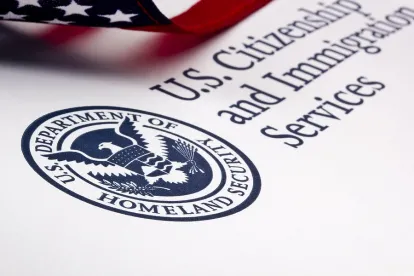On April 27, 2021, U.S. Citizenship and Immigration Services (USCIS) issued updated policy guidance “instructing officers to give deference to prior determinations when adjudicating extension requests involving the same parties and facts unless there was a material error, material change, or new material facts.” This USCIS policy update reverts back to a long-standing policy originally established in 2004.
The original USCIS memorandum, titled “The Significance of a Prior CIS Approval of a Nonimmigrant Petition in the Context of a Subsequent Determination Regarding Eligibility for Extension of Petition Validity,” directed immigration adjudicators, when adjudicating petition extensions involving the same parties and underlying facts as the initial petition, to defer to prior approvals. On October 23, 2017, USCIS rescinded the deference policy, following President Donald Trump’s “Buy American, Hire American” executive order, which directed the secretaries of State, Labor, and Homeland Security, as well as the attorney general, to propose new rules and issue new guidance reforming the H-1B visa program. Following the issuance of the “Buy American, Hire American” executive order, USCIS released statistics reflecting significant increases in the rates of H-1B requests for evidence (RFEs), from less than 30 percent in the first quarter of fiscal year (FY) 2017 to 60 percent in the first quarter of FY 2019. In April 2020, USCIS reported 2.5 million cases in backlog status, citing an increase in the overall volume of filings after the 2016 presidential election, the growing complexity of the work due to policy changes, and staffing difficulties.
USCIS reinstated the prior deference policy in accordance with President Joe Biden’s February 2, 2021, executive order, “Restoring Faith in Our Legal Immigration Systems and Strengthening Integration and Inclusion Efforts for New Americans.” The executive order directed the secretaries of State and Homeland Security, as well as the attorney general, to “identify barriers that impede access to immigration benefits and fair, efficient adjudications of these benefits and make recommendations on how to remove these barriers.” According to USCIS, giving deference to prior adjudicated approvals involving the same parties (e.g., same petitioning employer and beneficiary employee in an extension of status continuing the same employment) “promotes efficient and fair adjudication of immigration benefits.”




 />i
/>i

